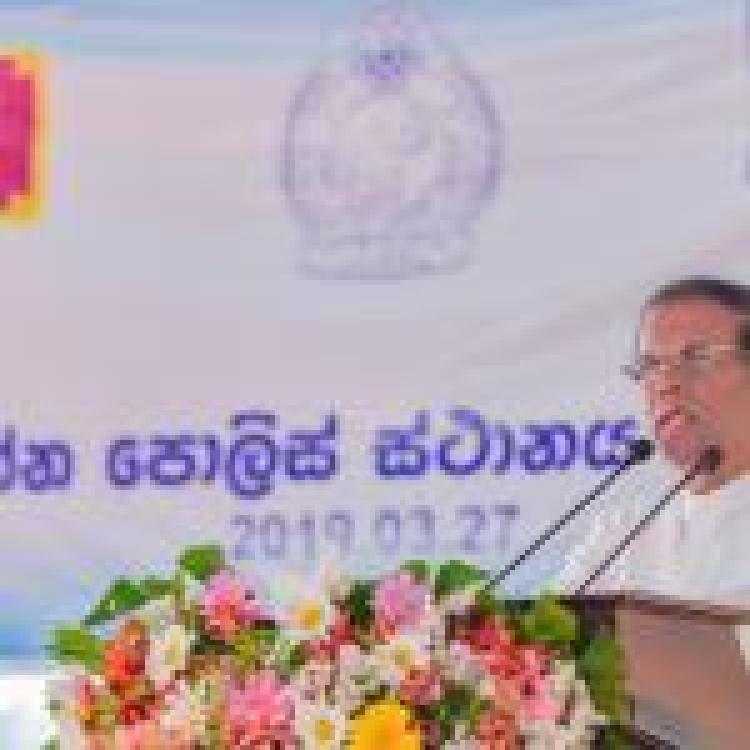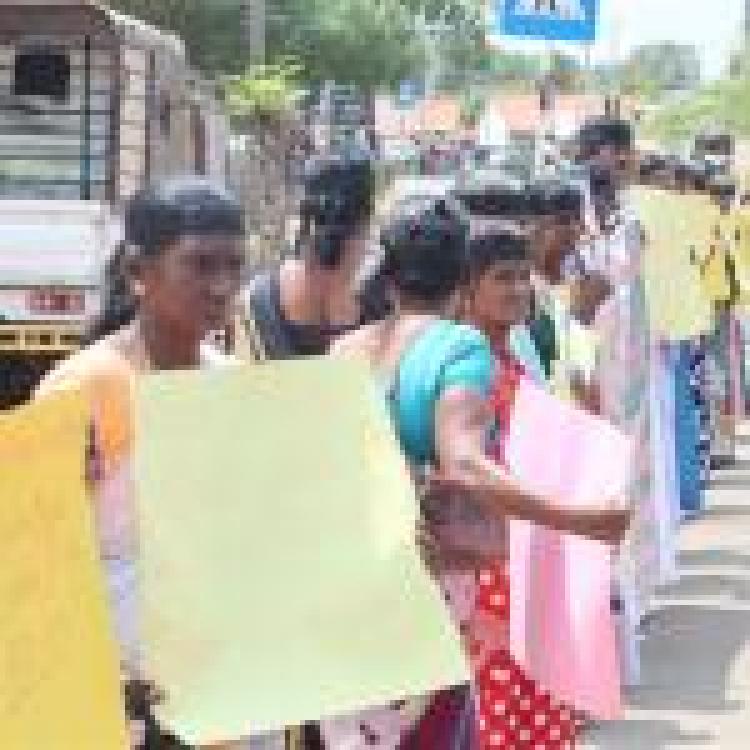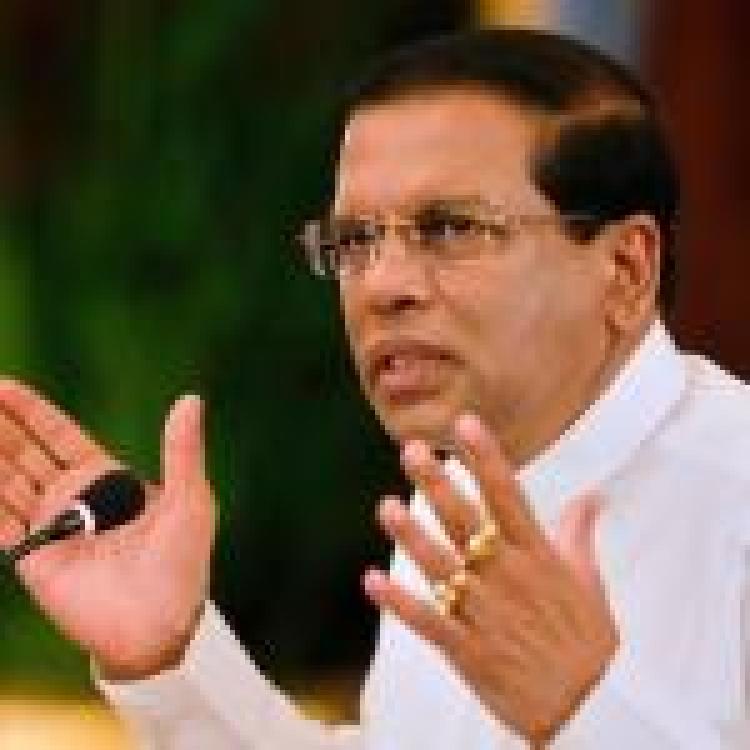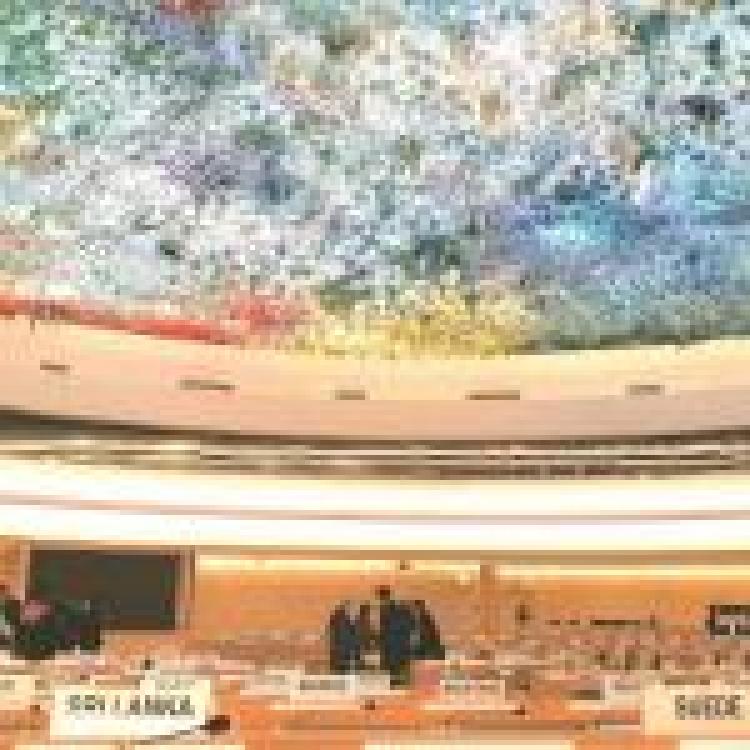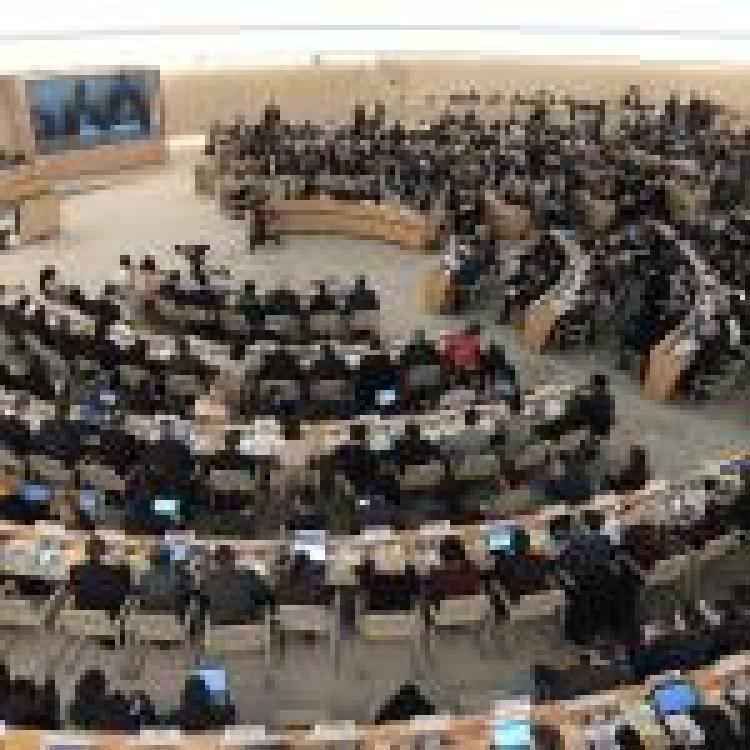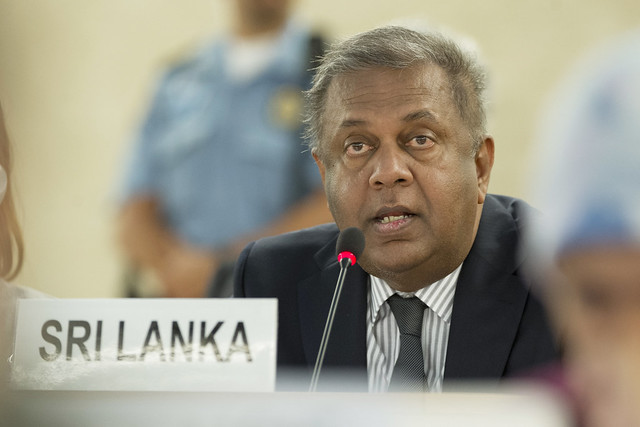
UN Photo / Jean-Marc Ferré
Sri Lanka's finance minister, Mangala Samaraweera, warned that troops may face universal jurisdiction cases around the world and emphasised that a UN resolution on accountability still mandates a “local mechanism”, in an article entitled the "Truth about the Geneva Human Rights Council Resolution" released last week.
In the minister's statement, he warned that abandoning resolution 40/1 would leave army personnel who have been accused of war crimes “vulnerable to be subjected to universal jurisdiction”.
Samaraweera's piece maintains that Sri Lankan should support a local mechanism with the involvement of foreign experts “in the capacity that we decide, within our national system”. He stated that a UN resolution on accountability mandates “a Sri Lankan judicial mechanism not an international one”.
"The Resolution says that the Sri Lankan justice system must investigate and adjudicate on allegations of the most serious human rights violations,” he adds, stating that foreign judges could participate “ in the capacity that we decide, within our national system”.
The article follows repeated calls from Tamils around the world that Sri Lanka be brought before the International Criminal Court (ICC).
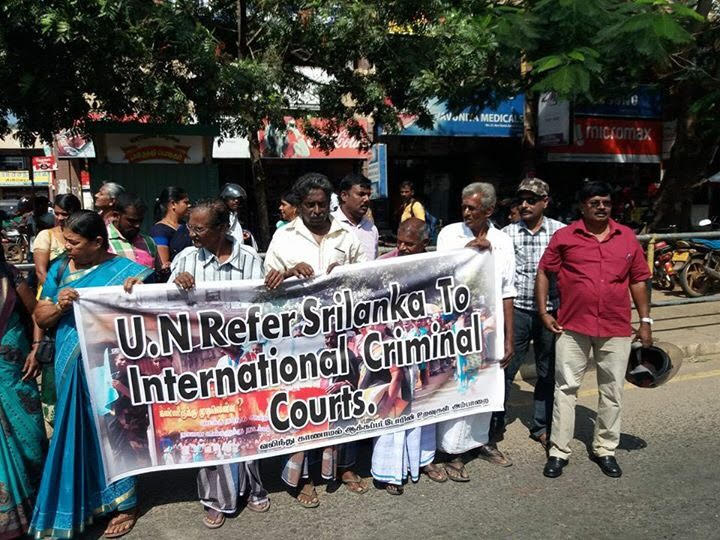
Read more: Families of the disappeared protesting in Vavuniya on January 31, 2019
A number of international NGOs have also criticised Sri Lanka’s unwillingness to hold war criminals to account and continued failure to meet commitments outlined in the resolution. The ICJ has rejected a purely domestic mechanism stating a "referral to the International Criminal Court or the creation of another international mechanism to facilitate criminal accountability would be fully warranted”.
Calls for UN member states to exercise universal jurisdiction were also echoed by the Asian Forum for Human Rights and Development, which stated:
“Member states must consider seriously the High Commissioner’s recommendation to use universal jurisdiction principles and explore other options to advance accountability in the absence of credible domestic processes,”
Read more: International NGOs reiterate calls for international accountability in Sri Lanka
Writing on security sector reform, Samaraweera also claimed it was an "opportunity to enhance its reputation and professionalism", which would help Sri Lankan troops participate in international exercises. "Can those who call themselves patriotic really deny the military the opportunity to serve the noble cause of peacekeeping around the world?,” he asked.
Sri Lankan troops have faced criticism in their international deployments, which has led to them commiting rights violations. A confidential 2018 UN investigation identified 134 Sri Lankan soldiers who are alleged to have sexually exploited nine Haitian boys and girls from late 2004 to mid-2007, during a peacekeeping mission in the country. “The acts of sexual exploitation and abuse were frequent, occurred usually at night, and at virtually every location where Sri Lankan military were deployed,” said the report.
Read more: Sri Lankan military attempts to cover up Haiti peacekeeper abuses
The lack of accountability within the armed forces was further emphasised by the United Nations High Commissioner for Human Rights, Michelle Bachelet, more recently as her office reported that there was "virtually no progress” made on the investigation of war crimes.
The finance minister's piece also lambasted the joint-opposition who he accuses of engaging in hyper-nationalist rhetoric.
He describes their action as "a display of egocentric one-upmanship, emotional manipulation and nationalistic propaganda calculated to stir frenzy, deceive the public and create fear to gather possible votes in the emerging electoral scenario" and cast doubt on the opposition stating "there are those who oppose any measure to achieve accountability and reconciliation because they don't want justice".
"They want victor's justice. They don't want the peace of the living, they want the peace of the cemeteries. They calculate that by appealing to our worst instincts: by mobilizing the base emotions of fear and hate, they will grasp power".
This sentiment was reflected on his twitter where he stated:
"As all scoundrels do, @PresRajapaksa is resorting to extreme nationalism in the face of serial defeats in trying to topple a legal & a legitimate government. Your politics & racism has no place in #SriLanka anymore. #CoupLK #lka"
Read Samaraweera's full article here.
Samaraweera, who was Sri Lanka’s former foreign minister when the government co-sponsored a UN resolution mandating an accountability mechanism with international involvement, has a long history in southern politics.
He started as the Sri Lanka Freedom Party's chief organiser for Matara in 1983 and Assistant Secretary of the SLFP Coordinating Secretary of the Mother’s Front.
As a leading member of the SLFP, Samaraweera also participated in several Sinhala nationalist rallies, including a 2003 demonstration alongside Mahinda Rajapaksa that marched against the "betrayal of Sinhala nation” by signing a ceasefire with the LTTE.
He was an aide of then Sri Lankan president Chandrika Kumaratunga, when he lashed out at Norwegian peace brokers claiming they had "not shown any sensitivity to the feelings of Sri Lankans”.
"Of course we can't expect anything better from a nation of salmon-eaters who turned into international busybodies,” he added.
He then rose to the post of Mahinda Rajapaksa’s foreign secretary as the Sri Lankan military began a massive military offensive that killed tens of thousands of Tamils.
Samaraweera also spoke out against peace monitors from the Sri Lankan Monitoring Mission (SLMM) who stated that Sri Lankan security forces were responsible for the murder of 17 ACF aid workers in Muttur.
"I am not calling him [SLMM] a liar, but I am calling it a very, very irresponsible statement," he said in an interview with the BBC.

